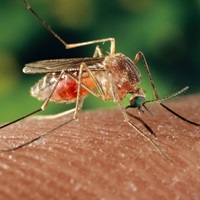The President's Message – 21 July
Hello, I’m Dr Jacqueline Small, President of the Royal Australasian College of Physicians. I would like to acknowledge the Gadigal people of the Eora Nation as the traditional owners and custodians of the lands I am speaking on today. I extend my respect to all Aboriginal, Torres Strait Islander, and Māori people. Together we restate our shared commitment to advancing Aboriginal, Torres Strait Islander and Māori health and education as core business of the RACP.
People living outside metropolitan areas have poorer health outcomes. The 28 per cent of Australian and 16.3 per cent of Aotearoa New Zealand people who live in regional, rural and remote areas have higher rates of hospitalisations, deaths and injury. They also have poorer access to and use of primary healthcare services, yet we have disproportionately fewer members in these areas than in metropolitan centres.
In 2020, the RACP committed to advancing equitable health outcomes for Australians and New Zealanders living in regional and rural locations. We want to prioritise, advocate and support regional and rural workforce and training initiatives.
Last month, our Board approved our College's Regional, Rural and Remote Strategy. The strategy serves to enhance our responses to this unacceptable inequity. It's now available on our website and I encourage you to read it. The recommendations are grouped within the following focus areas; prioritise regional, rural and remote healthcare at the RACP, build capacity and capability to provide physician training in our areas, improve the attraction and retention of regional, rural and remote physicians, collaborate to improve regional, rural and remote healthcare provision, and five; respect, promote and acknowledge Indigenous peoples.
I've just returned from a week-long visit to the Northern Territory to meet our trainees, supervisors, Fellows and healthcare decision makers, launch the strategy and talk with them about their work. I was enlightened, inspired and challenged by my trip to the Northern Territory. I met many committed members of our College. The word vast really doesn't do justice to this land. It's as big as France, Spain and Italy combined and home to one quarter of a million people.
My first stop was Garramilla, Darwin then we drove to Emungalan, Katherine and onto Mparntwe Alice Springs by plane. I had a productive meeting with Dr Marco Briceno, the Chief Executive Officer of Northern Territory Health, discussing healthcare delivery in the Territory.
I specifically raised the importance of protecting teaching time for trainees, a vital component of their learning. I was pleased to meet Angela Brannelly, Regional Executive Director, Big Rivers region. She spoke of the unique opportunities to work in integrated models of care with remote communities, some only able to be reached by plane.
Can you tell us a little bit about what it's like for a registrar or a physician to come and work here in Katherine?
"It's very exciting. They get to see a lot of very different presentations and people who need care within the Big Rivers region. One of the things that I think is really valuable is that our consultants and our registrars get to go out to remote communities to see their patients, so you know instead of us bringing patients in, for example, one of my communities is about 900 kilometres away from Katherine Hospital. So instead of putting an older person on a bus for a you know a nine-hour bus trip with no toilet, we're able to send our consultants and our registrars out to those communities to actually see the patients."
I met with trainees, senior medical staff, DPEs, Emma Spencer, and Sarjan Thomas, Director of Medicine and the CEO of Alice Springs Hospital. I was deeply inspired by the trainees and consultants I met. They are committed to health equity, Indigenous health and making a difference.
We have 44 Basic Trainees across the territory in total. “If you’re someone who has a philosophy of health that's based in grassroots and sort of being at the coal face, from that point of view I don't think you could be anywhere else to train.”
Some of the experiences and comments that really had an impact for me include Nathaniel, a trainee in Darwin who said that clinically it's fantastic, where else can you go for that? It's second to none.
John, another Darwin trainee spoke of the housing inequities. The inequity between First Nations and the rest of the population such as children suffering from rheumatic heart disease needing surgery. “The inequity that we see here in the disparaging health outcomes is probably the most obvious in places such as the NT.”
Recruitment and retention of staff. It is a key issue affecting health services, despite the many opportunities and strong communities that exist.
About 70 per cent of patients in the Northern Territory are Indigenous and at a young age, often have serious, yet preventable chronic diseases such as renal failure. This is over twice the proportion of the population who are Indigenous. It's an avoidable tragedy.
Anna Holwell, Head of the Department of Medicine in Alice Springs, spoke of her love of working in Alice Springs Hospital. She said it's incredibly interesting.
"I'm often seeing things that I have only read in textbooks. It's a smaller, friendly hospital and collaborative.” Anna also spoke to the energy and commitment of her colleagues, four of whom are female physicians with stay-at-home partners.
She said she wants trainees and Fellows to view doing a stint in a place like Alice akin to completing a PhD or an overseas Fellowship and in turn when hospitals are recruiting, that this experience is highly regarded.
John Boffa, Central Australian Aboriginal Congress, presented data to show that Indigenous-led public health initiatives aimed at alcohol control can have a dramatic impact on admission rates.
John also told something of his story and the decades-long advocacy to ensure Aboriginal people experience the same quality of healthcare as others do. Many of the services are specifically involving Indigenous professionals to provide more accessible healthcare.
The Alice Springs DPE was proud to be able to meet a greater proportion of training with the exams being delivered on-site for the second year. Purple House demonstrated that innovative models of delivering renal dialysis to very remote communities can be highly successful and it's as easy to pick the paediatric department in Alice, as in Sydney, with colourful spaces, motivated staff and the head of the department wearing a dinosaur t-shirt. The medicine practiced in the Territory is like nothing else most doctors will see elsewhere in Australia and I'm very grateful to have visited.
I want to thank the many people who welcomed me including Amoonguna Community Health Service, Nick Buckmaster, immediate past Chair of College Council for his role in the Regional, Remote and Rural Strategy, Simon Quilty, Richard Bowden, Don Campbell, physicians who practise in the Northern Territory and helped plan the trip. Richard Johnson, Executive Director, Medical and Clinical Services in Alice Springs, and most importantly, Lee Bradfield, Manager of Indigenous Strategy and Katherine Economides, SEO of the Northern Territory and South Australian Regional Committees. They organised the trip and were my fabulous travel companions.
Some of our most urgent and challenging healthcare issues are in regional, rural and remote Australia and so are some of our most motivated, versatile and resourceful physicians and paediatricians.
Thank you for watching.
Dr Jacqueline Small
RACP President
To contact Jacqueline, please email president@racp.edu.au
The RACP held a roundtable in Parliament House with the Parliamentary Friends of Child and Adolescent Health and Mental Health on 21 June. It was co-hosted by Dr Mike Freelander MP, Dr Monique Ryan MP and Dr David Gillespie MP, who are all Fellows of the College.
The roundtable raised awareness across the Federal Parliament of the health needs of children in care and protection services and youth justice settings. During the roundtable, Dr Jacqueline Small launched the RACP’s position statement, the Healthcare of Children in Care and Protection Services Australia. The event was well-attended by Federal Government Ministers, Members of Parliament, RACP members, and leaders of child health organisations.
View the event recording
1e6cb4afbbb261c2b08bff01001c3177.jpg?sfvrsn=5aded51a_0&MaxWidth=550&MaxHeight=&ScaleUp=false&Quality=High&Method=ResizeFitToAreaArguments&Signature=CDFC4004697743B4A2B925BA9E538CEB90473250)
The Australian Minister for Health and Aged Care, the Hon Mark Butler MP addressed the RACP Healthcare Reform Virtual Town Hall on integrated multidisciplinary care on 31 May. The discussion with the Minister was followed by presentations from Dr Tony Mylius, Co-Chair of the Healthcare Reform Working Group; Debra Leticia, Consumer Co-Chair of the Healthcare Reform Working Group; and Professor Vasi Naganathan, Immediate Past President of the Australian and New Zealand Society of Geriatric Medicine.
Watch the event recording
Over the past few months, members have represented the RACP in a range of important parliamentary inquiries in Australia.
On 17 May, the PCHD President, Professor Nitin Kapur attended the Parliament of Western Australia Inquiry in Child Development Services to provide evidence to the committee as the RACP representative. The Inquiry is focused on the delivery of child development services in both metropolitan and regional Western Australia, including paediatric and allied health services. RACP President, Dr Jacqueline Small also spoke to the ABC news on this important issue.
The RACP continues strong advocacy in support of the Raise the Age campaign. On 15 June, the RACP President Dr Jacqueline Small provided evidence at a public hearing for the ACT Legislative Assembly Inquiry into Justice (Age of Criminal Responsibility) Legislation Amendment Bill 2023. The RACP strongly urges the ACT Government to reconsider its position and amend the Bill to raise the minimum age of criminal responsibility to at least 14 years on commencement of the Bill, without exceptions or carve outs.
In June, the RACP provided a submission to the Senate Inquiry into the assessment and support services for people with attention deficit hyperactivity disorder (ADHD). This submission led to an invitation for the RACP to provide evidence at a public hearing on 29 June, alongside a representative from The Royal Australian College of General Practitioners (RACGP). Paediatrician and ADHD expert Associate Professor Daryl Efron provided evidence on behalf of the RACP, with discussions at the hearing focusing on models of care to support assessment and services and the role of the NDIS in supporting people diagnosed with ADHD.
The RACP is committed to advocating for important issues and striving to create positive change in the healthcare system. For more information on our recent policy and advocacy activities, please see the latest College Policy & Advocacy Report highlighting activities from April to June 2023.

After this year’s difficult decision to cancel RACP Congress, the RACP launched the 2023 Networking Series. The first night in Whanganui-a-Tara Wellington was a big success. A feature of the event was a fascinating panel discussion about the physician of the future. With Perth hosting the next free evening and registrations now open for several other cities, members looking to connect with friends and colleagues, as well as those looking to expand their own networks should register. Find out more about your local event today.
Find out more
Now is the time to nominate a colleague deserving of recognition for outstanding contributions and achievements. Nominations are open until 30 September 2023.
Nominations are being called for these prestigious College Awards:
Full details are available on the RACP Foundation website. You may also email the RACP Foundation with enquiries.

Friday, 18 August 2023: A free hybrid event
Support the recipients of the 2022 RACP Trainee Research Awards from across Australia and Aotearoa New Zealand as they present their research on topics related to paediatric and child health and adult medicine. They will be joined by guest speaker Clinical Geneticist and Nephrologist, Dr Amali Mallawaarachchi, and members of the Grants Advisory Committee.
Register now

Listen now
On 28 January 2022, a 75-year-old man was admitted to the regional Albury Wodonga Health Service with a high fever and Parkinsonian symptoms. The patient spent over a week in intensive care, but brain scans did not reveal an obvious aetiology and assays for a range of pathogens came up negative.
When serology eventually revealed the presence of antibodies against Japanese encephalitis virus this became only the second ever locally-acquired case on Australia’s mainland. Even more startling was the fact that the previous one had been way back in 1998 in Cape York, far north Queensland.
The Victorian patient was the first of what would become an outbreak of 43 symptomatic human cases that resulted in six deaths. The JE virus would be detected in all mainland states and retrospectively linked to another fatality in March 2021 from the Tiwi islands of the Northern Territory. In this podcast we hear about the confluence of factors that brought a classically tropical disease to the southern states. The story is told from the perspective of the treating clinicians, microbiology specialist and public health physician who started putting the puzzle together from four sentinel cases.
Guests
- Adjunct Associate Professor Ian Woolley FRACP (Monash Infectious Diseases; Monash University)
- Dr Justin Jackson FRACP (Albury Wodonga Health)
- Dr Sam Thorburn (Austin Health)
- Dr Paul Kinsella (Victorian Infectious Diseases Reference Laboratory, Peter Doherty Institute for Infection and Immunity)
- Associate Professor Deborah Friedman FRACP (Victorian Department of Health; Deakin University)
Subscribe
Please visit the Pomegranate Health web page for a transcript and supporting references. Log in to MyCPD to record listening and reading as a prefilled learning activity. Subscribe to new episode email alerts or search for ‘Pomegranate Health’ in Apple Podcasts, Spotify, Castbox, or any podcasting app.

Ep97: The governance of AI
This is the third part of a series on artificial intelligence in medicine. Previously we explained how to train and test machine learning models that assist in decision-making, and then how to iron out ergonomic friction points in the clinical workflow. We’ve mentioned how deep learning neural networks are more capable than classical models at dealing with big noisy data sets, but also that the reasoning they use to solve questions asked of them might be inexplainable users.
This creates a certain unease among clinicians and regulators like Australia’s Therapeutic Goods Administration. According to some, we just need to test outcomes from use of AI-assisted decision-making with same rigour we do for pharmaceutical interventions, not all of which we fully understand. But despite updates to the spirit and consort for reporting of randomised controlled trials, there hasn’t yet been a lot of high-quality clinical research into use of AI-based medical devices.
Guests
- Adjunct Associate Professor Paul Cooper PhD (Deakin University)
- Associate Professor Sandeep Reddy MBBS PhD IPFPH ECFMG CHIA FAcadTM FAIDH FCHSM SFHEA (Deakin University)
- Professor Brent Richards MBBS FRACP JJFICM (Gold Coast Hospital and Health Service; Director, IntelliHQ)
Subscribe
Please visit the Pomegranate Health webpage for a transcript and supporting references. Log in to MyCPD to record listening and reading as a prefilled learning activity. Subscribe to new episode email alerts or search for ‘Pomegranate Health’ in Apple Podcasts, Spotify, Castbox, or any podcasting app.
The Haematology Society of Australia (HSANZ) and their charity partners offer a range of PhD scholarships, clinical Fellowships, grants and awards.
The following opportunities are available:
- three HSANZ / Leukemia Foundation PhD scholarships worth $150,000
- one HSANZ / Arrow Foundation PhD Scholarship worth $150,000
- one HSANZ / Leukaemia & Blood Cancer New Zealand PhD Scholarship worth $130,000
- up to two HSANZ Clinical Fellowships worth $70,000
- the Albert Baikie Memorial Medal and Award worth $5,000
- the HSANZ / Snowdome Foundation Mid-Career Blood Cancer Research Grant worth $5,000.
Find out more
The College’s Policy & Advocacy Council Q2 report highlights some wonderful work that our college has accomplished in the previous quarter with input from members. We would like to thank all of our members for their contributions and support.
Read the report
 Whether you are a New Fellow, established within your career, or beginning to wind down for retirement, the RACP CPD Home can support you to meet your specialist regulatory requirements.
Whether you are a New Fellow, established within your career, or beginning to wind down for retirement, the RACP CPD Home can support you to meet your specialist regulatory requirements.
We have a long history as an accredited CPD provider within Australia and Aotearoa New Zealand, and our MyCPD team are at hand to provide you with tailored guidance throughout the annual CPD cycle. Plus, your RACP membership means you can access the RACP Online Learning platform for a selection of tools and resources relevant to you throughout your career.
You have never stopped learning, we’re here to make sure that continues. My RACP. MyCPD Home.
Find out more
Stay informed
Read other RACP eBulletins:
Join the conversation in the ROC